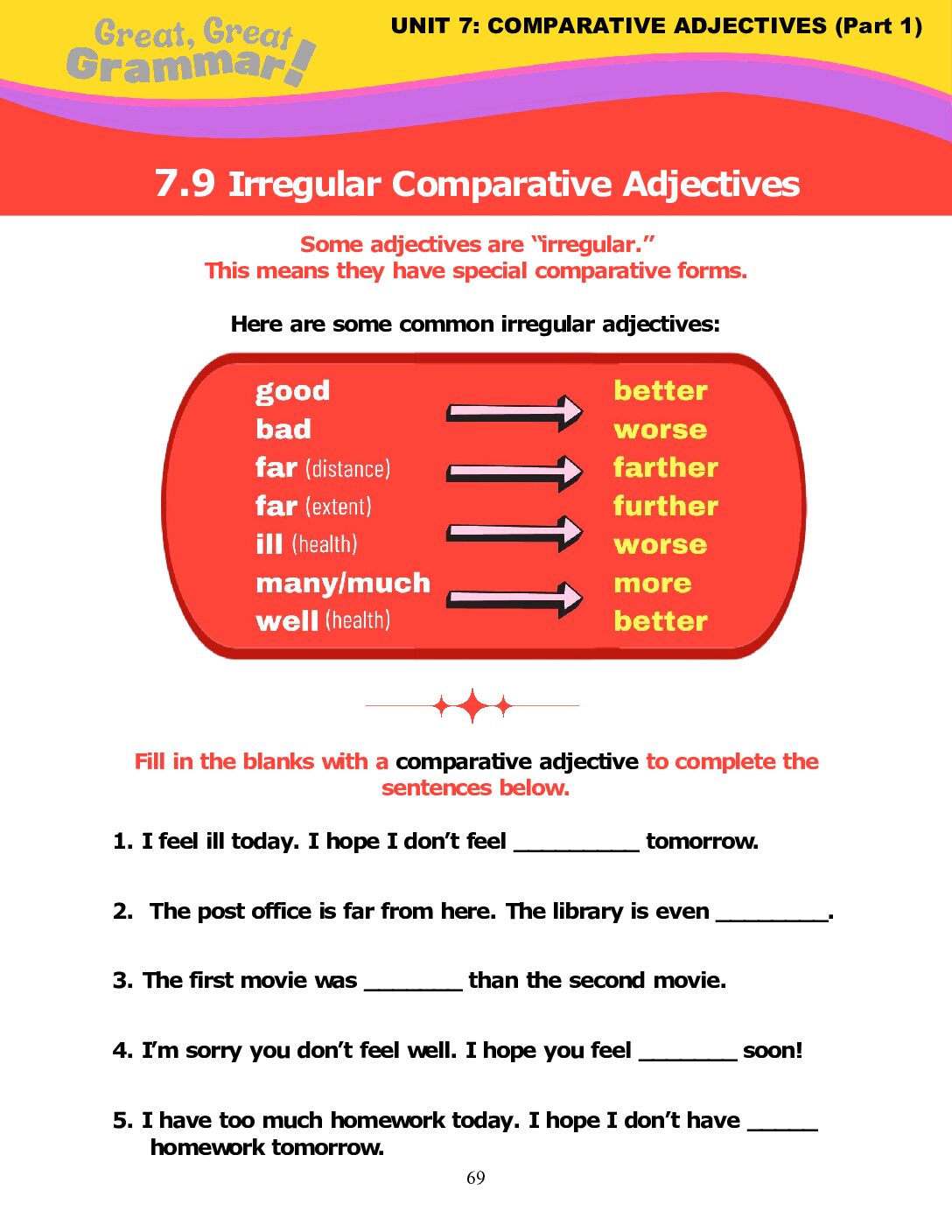This ESL grammar lesson introduces the comparative form of irregular adjectives (good, bad, far, ill, many/much, well). Students then practice filling in the blanks of various sentences with the comparative forms of these irregular adjectives.
ESL Grammar: What are Irregular Comparative Adjectives?
Irregular comparative adjectives are adjectives that form their comparative degrees in unique ways, not by simply adding -er or using “more.” These adjectives have special forms that you need to memorize.
Irregular Comparative Forms
- Good
- Comparative: Better
- Example: This book is better than that one.
- Bad
- Comparative: Worse
- Example: This test is worse than the last one.
- Far
- Comparative: Farther or Further
- Example: The station is farther from my house than the supermarket.
- Ill
- Comparative: Worse
- Example: He is feeling worse today than he did yesterday.
- Many/Much
- Comparative: More
- Example: There are more students in this class than in the other one.
- Well
- Comparative: Better
- Example: She is feeling better after taking the medicine.
The beginner-level grammar lesson below introduces the concept of irregular comparative adjectives in a clear and simple manner to help young ESL learners to understand this concept. Our series of ESL grammar lessons on subjects and verbs introduce these concepts and reinforce them through helpful and instructive exercises.
This lesson is available for free download, and you can download many more English grammar lessons focusing on all different parts of speech (nouns, verbs, adjectives, adverbs and lots more!) in our comprehensive, beginner-level ESL grammar textbook Great, Great Grammar! (Book 1: Parts of Speech).

